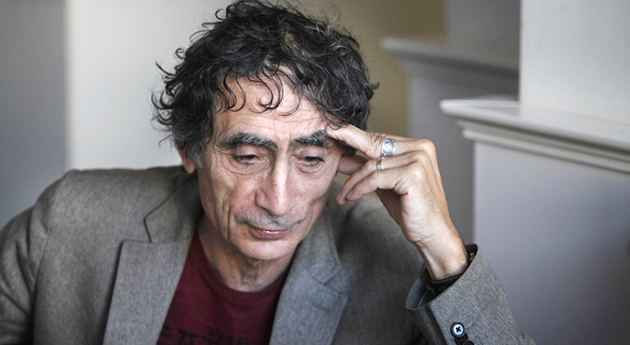It was an overcapacity auditorium, with people standing and sitting on the floor for Maté’s lecture on September 25. The presentation started with five rehabilitated ex-convicts sharing the traumatic experiences they have overcome, which led to their previous bouts of addiction.
All their stories were fascinating, but I think everyone in the audience was taken to another place when one of the ex-cons, a man who had been incarcerated for 33 years, recalled his first-hand experiences with residential schools in northern Saskatchewan. As someone who always believed that everyone is responsible for their own fate, hearing personal accounts of sexual abuse from ages as early as five makes it hard to believe that anyone can live a normal life after that.
When Maté took the stage, he began with a bold statement: “Every three weeks in the U.S., a 911 call happens because of overdose.” The rest of his talk focused around three main points: how Canada’s correctional system is more punitive rather than rehabilitative, that there are different perspectives from medical professionals and government employees on the topic of addiction, and how a person’s brain development is directly related to the environment they were raised in. He would often come back to his main argument, which was that people who suffer from addiction only drink, smoke, or shoot up to help cope with pain. It was an amazing speech.


